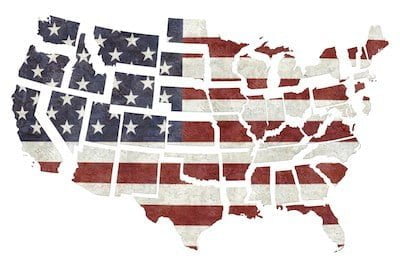Franchise Alchemy
Government Agencies: Franchise
- California
- California Document Quality Network Portal
- Federal Trade Commission
- Hawaii
- Illinois
- Indiana
- Maryland
- Michigan
- Minnesota
- Minnesota CARDS (Commerce Actions & Regulatory Documents Search)
- Nebraska
- New York
- North Dakota
- Oregon
- Rhode Island
- South Dakota
- Virginia
- Washington
- Wisconsin
- Wisconsin E-Filing
Selected Government Agencies: Business Opportunities
National Organizations
- American Bar Association (ABA) Forum on Franchising
- International Franchise Association (IFA)
- North American Securities Administrators Association (NASAA)
International Organizations
State Regulation of Biz Ops
 Originally posted on 01/04/2016, content updated on 11/24/2023
Originally posted on 01/04/2016, content updated on 11/24/2023
As of January 2016, 26 states in the U.S. had laws that governed the sale of business opportunities, or “biz ops”. California and some other states used the term “seller assisted marketing plan” instead of business opportunity, but the substance was the same. At the federal level, the Federal Trade Commission (FTC) regulated the sale of biz ops, as explained in an earlier post. The FTC biz op rule does not preempt the state biz op laws, but allows the states to impose their own requirements.
Like the franchise laws, the business opportunity laws contain disclosure requirements and many require a filing. Unlike in franchising, though, there is no uniformity among the various biz op laws. These laws define a business opportunity in various ways and impose differing obligations on biz op sellers. Moreover, if a biz op offering subject to the FTC rule is also subject to the disclosure requirements of a prospective buyer’s state, the seller may be required to deliver to the buyer both the federal and state disclosure documents.
So what is a business opportunity under the state laws? The definition generally starts with the sale or lease of goods or services that will be enable the purchaser to start a business. From that point on, the definitions diverge. Most require a minimum investment of $500, although a few states have lower dollar thresholds. A few definitions have a dollar limit at the high end, excluding purchases of more than $25,000 or $50,000. The dollar threshold includes amounts paid for inventory under some of these laws.
In addition, most of the state definitions of a business opportunity require that the seller make any one of the following representations:
- that the seller will provide locations or assist in finding locations for the operation of vending machines, racks, display cases or similar devices; or
- that the seller will buy back any product made using the supplies, equipment or services sold or leased to the purchaser by the seller; or
- that the purchaser will earn or is likely to earn or can earn an amount in excess of the initial payment paid by the purchaser; or
- that the seller will refund all or part of the price paid for the biz op; or
- that the seller will provide a marketing plan.
Some definitions include a representation that the seller will provide or assist in providing accounts or customers or that the seller guaranties a market for the products purchased or made by the purchaser.
Most state biz op laws have two important exemptions. One is for franchises sold in compliance with the FTC franchise rule. The second is for the license of a registered trademark. Presumably, if the seller goes to the trouble of obtaining trademark registration, the offer will not be a scam. In some states, a registered trademark is not enough; the seller must also have a net worth of at least $1 million in order to be excluded from the scope of the biz op law.
A seller of a biz op must register the offering in most of these states. This includes the filing of a disclosure document, a list of sales people and the payment of a filing fee. Many of these states require a bond, and some require that 80% or 85% of the initial payment be held in escrow until the seller has fulfilled its obligations to the purchaser. A few states also require sellers to file advertisements directed to prospective buyers. Several states require that sellers include the state registration number in their biz op advertising.
In most of these states, the seller must provide the required disclosures to prospective buyers anywhere from 48 hours to 10 business days before the buyer pays the seller or signs the contract. The required disclosures are usually less comprehensive than those required of franchisors.
Some states require the seller to include audited financial statements in the disclosure document.
The state biz op laws commonly require the seller to enter into a written contract with the buyer that contains certain basic provisions.
Franchisors need to be aware of the business opportunity laws. A small number of states require a biz op exemption filing even for franchise offerings made in compliance with the FTC franchise rule. Kentucky, Nebraska and Texas require franchisors to make a one-time biz op exemption filing. Florida and Utah require franchisors to make annual exemption filings.
In Connecticut, an offer of a franchise without a federal trademark registration will constitute an offer of a business opportunity unless some other exemption or exclusion applies. Once the mark is registered, a franchise offering is exempt in Connecticut. However, the franchisor should notify the state that its offering is exempt under the business opportunity law. (Conn. Gen. Stat. Ann. §36b-61(6).) Other states where the business opportunity laws may apply to franchise offerings involving unregistered trademarks are Georgia, Louisiana, Maine, North Carolina and South Carolina. A new franchisor whose mark is not yet registered should either wait to sell in these states until after the mark is registered, or the franchisor will need to comply with the biz op laws of these states.
Tom Pitegoff,
Tom.Pitegoff@offitkurman.com

